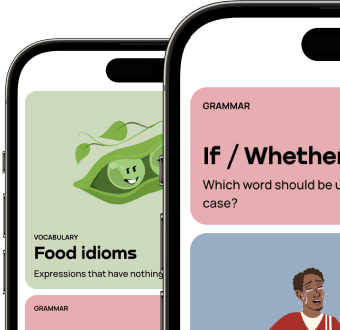Le Conditionnel – How to form and when to use the French conditional mode
Contents
Key takeaways
- The conditionnel is a French mood, often called the conditional tense.
- It expresses possibility, politeness, hypothetical actions, or future-in-the-past.
- Formed with the future stem + imperfect endings.
- Common in everyday speech: je voudrais, il pourrait, nous aimerions.
- Essential for polite requests, hypothetical sentences, and expressing conditions.
What Is the Conditionnel in French?
The conditionnel is a mood used to describe actions that depend on a condition, often introduced by si (if). It is similar to the English “would + verb.”
Examples:
- Je voudrais un café. → I would like a coffee.
- Si j’avais de l’argent, je voyagerais plus. → If I had money, I would travel more.
How to Form the Conditionnel
The conditional is formed with:
Future simple stem + Imparfait endings
Endings
| Person | Ending | Example with parler | Example with finir | Example with attendre |
| Je | -ais | je parlerais | je finirais | j’attendrais |
| Tu | -ais | tu parlerais | tu finirais | tu attendrais |
| Il/elle/on | -ait | il parlerait | il finirait | il attendrait |
| Nous | -ions | nous parlerions | nous finirions | nous attendrions |
| Vous | -iez | vous parleriez | vous finiriez | vous attendriez |
| Ils/elles | -aient | ils parleraient | ils finiraient | ils attendraient |
Irregular Stems in the Conditionnel
Just like in the future tense, some verbs have irregular stems.
- être → ser- → je serais
- avoir → aur- → j’aurais
- aller → ir- → j’irais
- faire → fer- → je ferais
- pouvoir → pourr- → je pourrais
- vouloir → voudr- → je voudrais
- venir → viendr- → je viendrais
- devoir → devr- → je devrais
- savoir → saur- → je saurais
When to Use the Conditionnel
1. Hypothetical Situations
- Si j’étais riche, j’achèterais une maison. → If I were rich, I would buy a house.
2. Politeness and Softening Requests
- Je voudrais un café, s’il vous plaît. → I would like a coffee, please.
- Pourriez-vous m’aider ? → Could you help me?
3. Future in the Past
- Il a dit qu’il viendrait. → He said that he would come.
4. Giving Advice
- Tu devrais étudier davantage. → You should study more.
5. Expressing Doubt or Rumor
- Il paraîtrait qu’elle est malade. → Apparently she is sick.
1
Conditionnel vs Futur Simple
| Futur simple | Conditionnel |
| Je parlerai → I will speak | Je parlerais → I would speak |
| Nous irons → We will go | Nous irions → We would go |
Difference: futur = certain action, conditionnel = hypothetical or polite.
Examples of the Conditionnel in French
- Nous aimerions visiter Paris l’année prochaine. → We would like to visit Paris next year.
- Si tu étudiais plus, tu réussirais. → If you studied more, you would succeed.
- Ils pourraient nous aider demain. → They could help us tomorrow.
- Je devrais partir tôt. → I should leave early.
Exercises: Practice the Conditionnel
1. Conjugate in the conditionnel
- Être → ________
- Aller → ________
- Pouvoir → ________
2. Translate into French
- I would like a coffee.
- If I had time, I would call you.
- They would come with us.
3. Correct the mistakes
- ❌ Je parlerai si j’avais le temps.
- ❌ Je serais heureux si tu viens.
Answers
- je serais, j’irais, je pourrais
- Je voudrais un café | Si j’avais le temps, je t’appellerais | Ils viendraient avec nous
- Je parlerais si j’avais le temps | Je serais heureux si tu venais
Tips for Mastering the Conditionnel
- Memorize the link with futur simple: same stems, but imparfait endings.
- Practice polite requests daily: je voudrais, je pourrais, vous aimeriez.
- Pair with si clauses: If + imperfect → conditional result.
- Listen for common phrases in French media: ça serait bien, je devrais, tu pourrais.
Summary
The conditionnel in French expresses hypothetical situations, polite requests, and future-in-the-past. Formed with the future stem + imparfait endings, it appears constantly in daily speech: je voudrais, je pourrais, nous aimerions.
By studying the conditional in French and the broader conditional mood, you’ll see how versatile it is. With regular practice, you’ll use it naturally while you make French part of your daily routine.

Comments